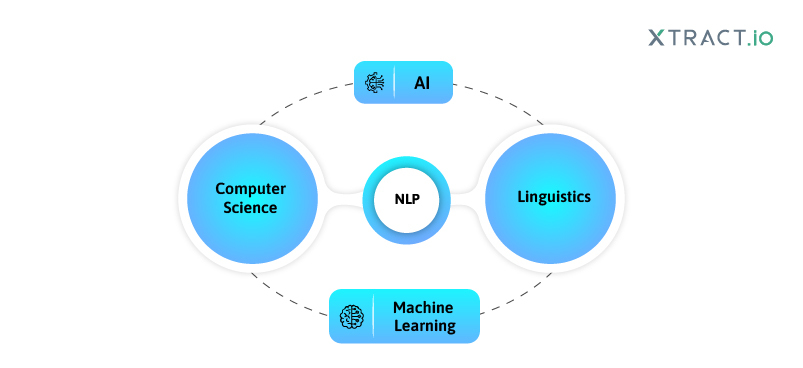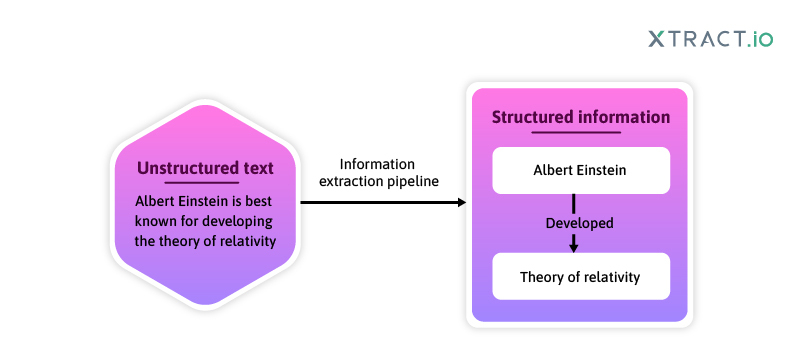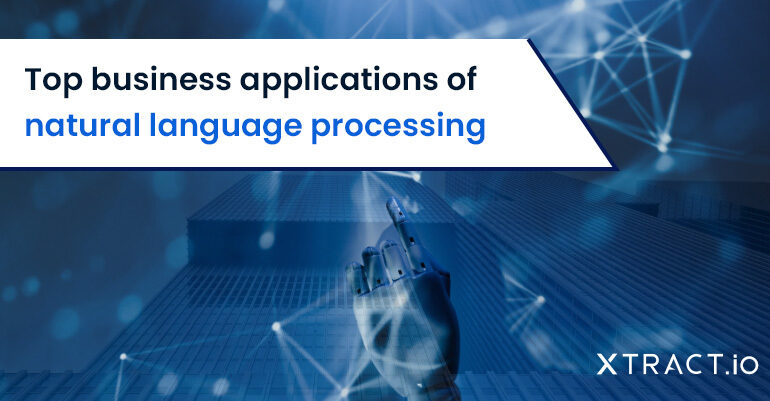Natural language processing is altering what most think is the only possibility with data analysis and business intelligence. Although NLP originated in linguistics and has existed for half a century, NLP is increasingly being applied across industries and businesses today. Natural language processing offers a wide range of real-world applications like data and text analysis, search engines, smart assistants, language translations, and more.
Businesses need data that is polished and ready to guide their next moves. And so, organizations go through the complex process of extracting valuable information from voluminous data sources – both structured and unstructured.
But, how do industry leaders overcome these challenges? They leverage technologies that drive value within their organizations. And natural language processing is one such technology. In this blog, we will dig deeper into what is NLP and the benefits of NLP in business.
What is Natural Language Processing (NLP)?
Natural language processing (NLP) is a fragment of linguistics, AI, and computer science and helps computer programs apprehend human language. Even though the technology is old, it’s gaining popularity due to easy accessibility to big data. Regardless of the language being written or spoken, NLP leverages artificial intelligence to digest real-world information, process it, and deliver it in a format that a computer can easily understand.

Think of it this way. Humans have sensors like eyes to see and ears to hear. Similarly, computers have programs to read data and microphones to collect information through audio. And just as we use our brain to make sense of what we see and hear, computers use programs to make sense of these inputs. Computers understand it at some point during the processing when the information gets converted into codes.
If you have used Alexa or Siri, you have already seen NLP in action. These devices hear what we speak, process it, and perform the action within seconds.
Applications of natural language processing for businesses
Now, where does natural language processing fit into being used in businesses? We know businesses deal with massive amounts of unstructured, text-laden data. NLP can be used here to accurately and efficiently process this data. Let’s look at the applications of NLP in business for data insights and more.
1. Deriving accurate data Insights: “What’s happening in the market?”
Every business owner and top decision-maker needs to know what their competitors are doing, what the target audience expects, and how the market performs. Being informed on these aspects helps businesses make the right decisions that directly impact their profit margins and revenues. However, the data these businesses look for is primarily unstructured, available on different platforms spread across the web.
The information on their competitors, customers, and the market is generally buried deep on the internet as text, images, infographics, reports, news articles, and websites. Here, natural language processing can be applied to derive valuable insights instantly and at scale through text extraction and categorization. NLP proves helpful in converting text source information into a more understandable format for a quick analysis.

Moreover, relying on information extraction techniques such as NLP can help organizations and businesses automate manual data extraction. This way, companies can reduce human effort and save time and money while making the process more efficient. For example, discovering that a business is shutting down may open various opportunities for its competitors as customers and suppliers will be looking to divert their business.
2. Delivering better customer service: “What do my customers expect?”
To say that businesses alone are reaping the benefits of NLP would be untrue. Most of the benefits NLP has for businesses are often passed down to its customers. If you were to look at service-based businesses, you’d find that as customer expectations keep increasing, it gets difficult for these businesses to offer high-quality support.
Organizations that adopt NLP-based process automation can effortlessly address this challenge. Otherwise, businesses with an enormous customer base will have to invest a lot to have enough people working in their customer support department to cater to thousands of customers every day.
Here, NLP techniques can automatically categorize and prioritize text and language from phone calls, emails, and chatbots. This way, appropriate and quick responses can be automatically sent based on the subject matter and content. Hence, improving the customer satisfaction rate.
Research conducted by IBM shows that almost 50% of businesses use NLP-powered applications. with customer service being the topmost use case. 52% of global IT professionals have reported that their companies have adopted or are planning to use NLP to improve customer experience.
3. Monitoring business reputation: “How do people perceive my brand?”
With increased access to the internet, customers are voicing their concerns (also their appreciation) about a particular product or brand online. Therefore, making reputation monitoring one of the topmost priorities for any business or brand. Uncovering what your customers talk about your company or products on social media or other online platforms is the most straightforward way to understand your customers’ pain points and address them.
Due to the high amount of data generated daily, it is almost impossible to analyze all these online channels manually. This is where natural language processing proves useful. Companies use sentiment analysis tools that run on algorithms that carry out text analysis and natural language processing to recognize the emotions behind the text quickly.
You may want to use sentiment analysis to track your brand’s social mentions, discover negative reviews, or understand public sentiment. Knowing what people think of your brand and why will help you develop the right business strategy to guide your business moves accordingly.
4. Targeting the right customers: “Who are the right audience?”
Marketers in the past were more focused on the demographics and psychological attributes of the consumers. But, today, they are rapidly adapting to the pace of the digital era. Since consumers today have a multitude of interacting opportunities digitally, marketers must analyze their digital footprints to gauge their attention.
Marketers can understand their target audience better by monitoring customer footprints like emails, social media, online searches, and browsing patterns. Natural language processing can help marketers analyze their digital footprints and personalize marketing campaigns accordingly.
Applying NLP techniques drive social prospecting to filter through online brand mentions and buying intent. Generally, NLP leverages keyword matching capabilities to understand buying sentiments and track profiles of consumers who correspond with the criteria. However, the recent improvements in technology have made NLP more functional. NLP now considers the context of every keyword. Thus, enabling marketers to display the most relevant advertisements for their audiences.
Adopting NLP for your business
Natural language processing benefits businesses that want to become more data-driven and successfully transform digitally. By introducing NLP-based analytics and business intelligence solutions, companies can speed up their processes and increase efficiency.
If any of the use cases we mentioned above sound like something your business needs, feel free to explore our website or connect with our experts. We would be happy to assist you in finding the right NLP-powered solution for your business.







